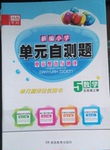Tess was a precocious(早熟) eight-year-old girl when she heard her Mom and Dad taling about her little brother,Andrew.____ __she knw was that he was very sick and they were completely _____money. They were moving to an apartment complex next month because Daddy didn’t have the money for the doctor’s bills and their house .Only a(n) _____could save him now.
Tess went to her bedroom and pulled a glass jelly(果冻) jar from its hiding place. She poured all the
out on the floor and counted carefully. Three times,
even.
The total had to be absolutely exact. No
here for mistakes. After carefully placing the coins back in the jar, she slipped out of the back door, and
her way six blocks to a chemist’s.
She waited patiently for the pharmacist (药剂师) to give her some
,but he was too busy at this moment. Tess twisted her feet to make a noise. Nothing. She cleared her
with the most awful sound she could muster. No good.
Finally the pharmacist asked in an
tone of voice, “What do you want? I’m talking to my brother from Chicago
I haven’t seen in ages,” he said without waiting for a reply to his question.
“Well, I want to talk to you about my brother,” Tess answered back in the same annoyed tone. “His name is Andrew and he has something bad
inside his head and my daddy says only a miracle can save him now. So how much does a miracle cost?”
“We don’t sell miracles here, little girl. I’m sorry,
I can’t help you,” the pharmacist said, his voice
a little.
There was a man there whose clothes were admirable. He asked the little girl, “What kind of a miracle does your brother need?”
“I don’t know” Tess replied with tears in her eyes. “I just know he's
sick and Mommy says he needs an operation. But my Daddy can’t pay
it, so I want to use my money.”
“How much do you have?” asked the man. “One dollar and eleven cents,” Tess answered.
“A dollar and eleven cents ― the
price of a miracle for your little brother,” smiled the man, “Take me to
you live. Let’s see if I have the kind of miracle you need.”
That well-dressed man was Dr. Carlton Armstrong, a surgeon, specializing in neurosurgery (神经外科). The operation was completely
charge and it wasn’t long before Andrew was home again and did well.
Mom and Dad were happy but they wonder how much the operation would have
. Tess smiled. She knew exactly how much a miracle cost…one dollar and eleven cents…plus the
of a little child.
| 小题1: | | A.As | B.All | C.All what | D.That |
|
| 小题2: | | A.in need | B.in short | C.out of | D.sort of |
|
| 小题3: | | A.miracle | B.doctor | C.God | D.operation |
|
| 小题4: | | A.change | B.jellies | C.candies | D.cookies |
|
| 小题5: | | A.way | B.doubt | C.chance | D.wonder |
|
| 小题6: | | A.drove | B.fought | C.made | D.struggled |
|
| 小题7: | | A.pills | B.attention | C.medicine | D.tablets |
|
| 小题8: | | A.mouth | B.eyes | C.ears | D.throat |
|
| 小题9: | | A.anxious | B.exciting | C.annoyed | D.tired |
|
| 小题10: | | A.who | B.where | C.because | D.which |
|
| 小题11: | | A.finding | B.planting | C.showing | D.growing |
|
| 小题13: | | A.soft | B.soften | C.softened | D.softening |
|
| 小题14: | | A.really | B.real | C.firm | D.firmly |
|
| 小题16: | | A.actual | B.exact | C.average | D.true |
|
| 小题17: | | A.the place | B.the apartment | C.the complex | D.where |
|
| 小题18: | | A.free | B.free of | C.not | D.no |
|
| 小题19: | | A.spent | B.paid | C.cost | D.took |
|
| 小题20: | | A.thought | B.value | C.patience | D.faith |
|



 新编小学单元自测题系列答案
新编小学单元自测题系列答案